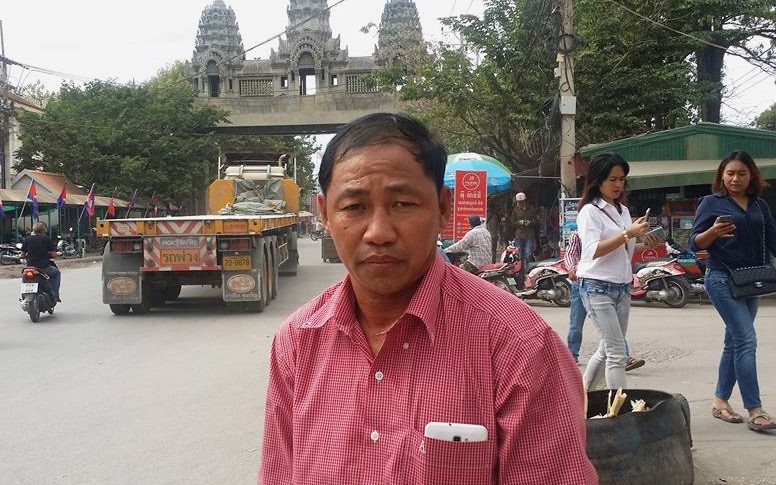A Koh Kong journalist was sentenced to a year in prison for incitement on Thursday — without a lawyer and just two days after being questioned by police — over a report that the deputy governor was “cruel and abuses citizens.”
Youn Chhiv, publisher of Koh Kong Hot News, reported on authorities clearing villagers’ huts from state land in Kiri Sakor district where he is said to also have cashew trees. The provincial administration this week singled out a video, “Koh Kong Provincial Deputy Governor Sok Sothy Is Cruel and Abuses Citizens,” as tarnishing the reputation of the official and the province.
While Chhiv pointed out that Prime Minister Hun Sen had called for residents on state land to receive titles — not be evicted — Defense Minister Tea Banh, who is head of the provincial ruling party working group, appears to have ordered local officials and government-friendly media to take action against him.
Vei Phirum, spokesperson for the prosecution at the provincial court, said that since Chhiv’s questioning by district police on Tuesday, provincial police had sent the case to prosecutors, who reviewed the case and sent it on to a judge to charge Chhiv with incitement to disturb social security.
“This morning there was a trial,” Phirum said. “The court decided to hold the trial against Youn Chhiv and announced the verdict this morning to sentence him to one year in prison and [a fine of] 2 million riel.”
Phirum said Chhiv had been caught “red-handed,” and the case was investigated “fully and thoroughly.”
Combined with the length of the potential imprisonment and the fact that Chhiv was not a minor, “this means that the person can be tried immediately.”
He added that Chhiv had been told about his right to have a lawyer, but the journalist had not taken one.
This “means he does not need a lawyer,” Phirum said, adding that Chhiv had now been sent to the provincial prison.
Sok Sovan, a provincial reporter in Koh Kong, said he did not have the chance to speak to Chhiv or observe the trial in court. Only family members were allowed inside the courtroom, Sovan said.
“This case is so confidential,” he said.
Sovan said he wished authorities had used the Press Law, not the Criminal Code, or otherwise have let Chhiv apologize publicly and delete the videos.
“This case is irregular and inappropriate. In a democratic country, when a journalist covers the news for the public interest and society, they should not be punished or imprisoned.”













